
‘Do not despair, fight till the end, believe in yourself’: Ani Armenakyan combines work with caring for her child with special needs
Ani lives in the city of Vanadzor in the Lori region (marz) of Armenia with her family. She has two small children; the youngest daughter has a disability.
Ani works at home as a hairdresser and a manicure master, combining work with special childcare.
“In Armenia it is not easy to take care of a child with special needs and work at the same time. As a rule, mothers of such children have difficulties finding a permanent job,” says Ani. In addition, mothers often lack opportunities for creative self-realisation and communication outside the family. Working from home helps them to expand their range of activities and to socialise more.
In many regions of Armenia, it is not customary for married women to work – fathers are the ones who make a living, and women are expected to keep the house and care for children. One always thinks: “What will others say?” But this stereotype, it seems, can be changed. Now, that the pandemic has changed the traditional ways of life and the economy, women began to look for work.
The EU project ‘Professional Training for Mothers of Children with Disabilities’, which was implemented in Lori Marz by the NGO ‘Armenian Mothers’, started to change the belief that women, especially those who take care of children with disabilities, can do nothing but care for kids.
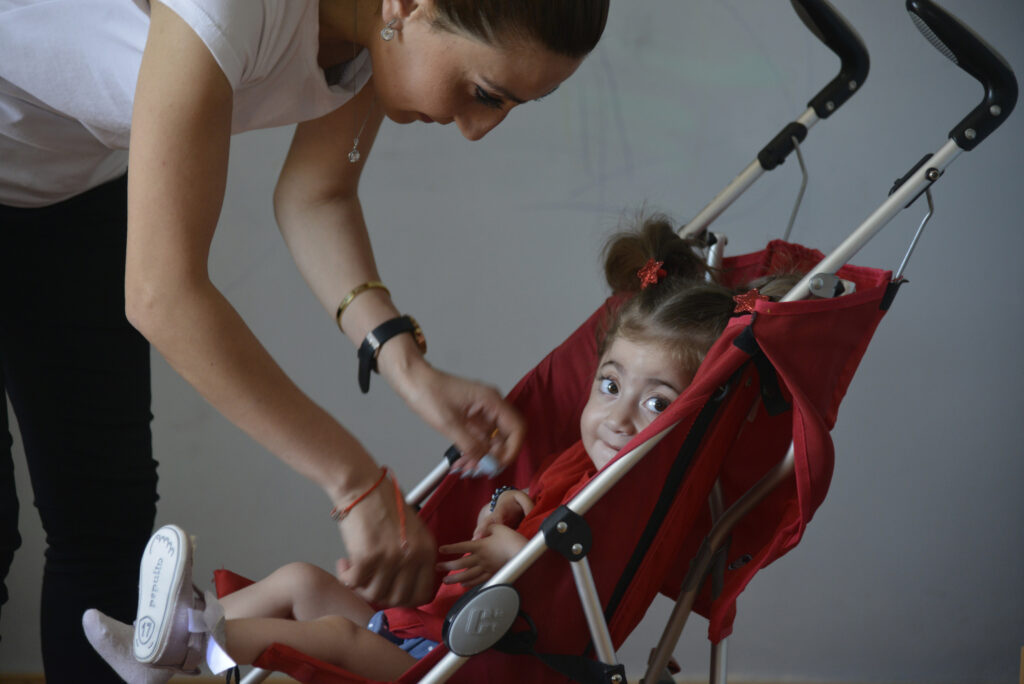 Ani with her child
Ani with her child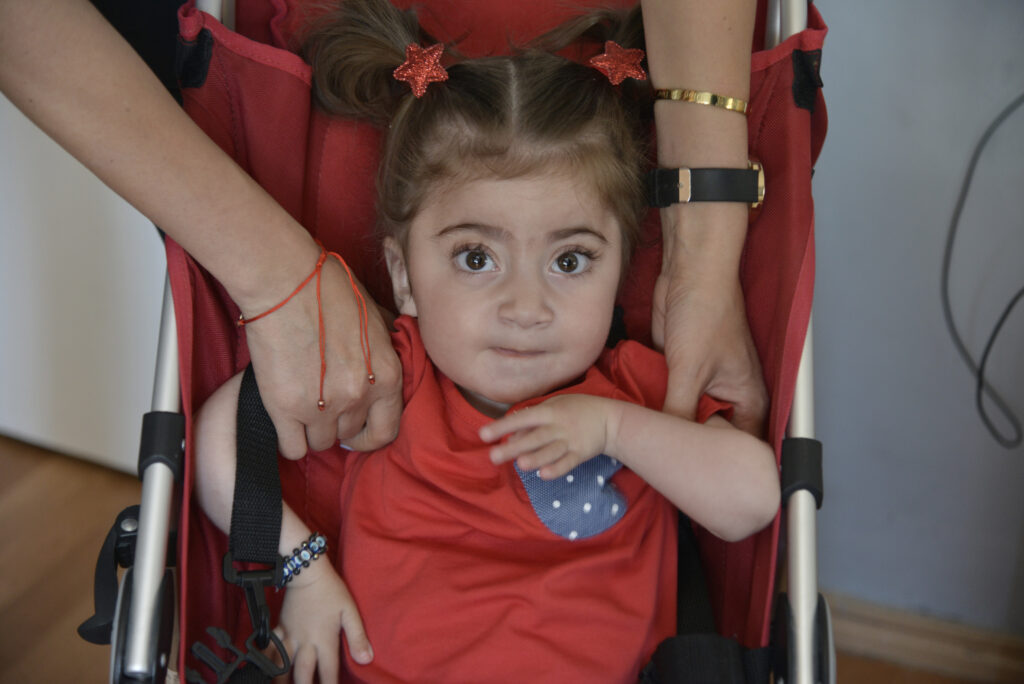 Ani’s youngest daughter
Ani’s youngest daughter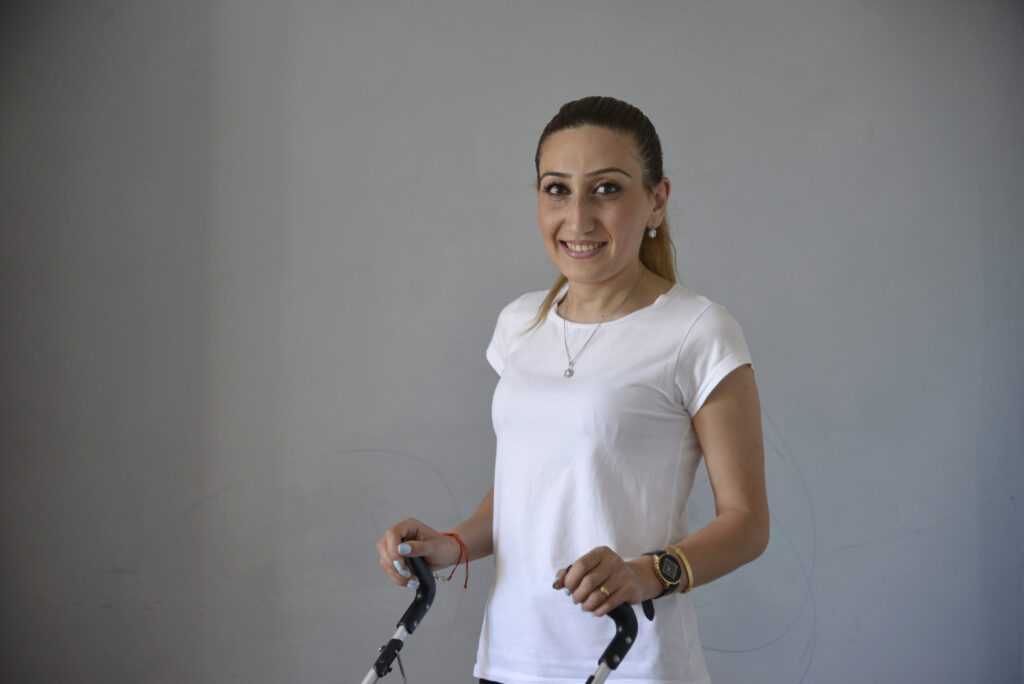 Ani Armenakyan
Ani Armenakyan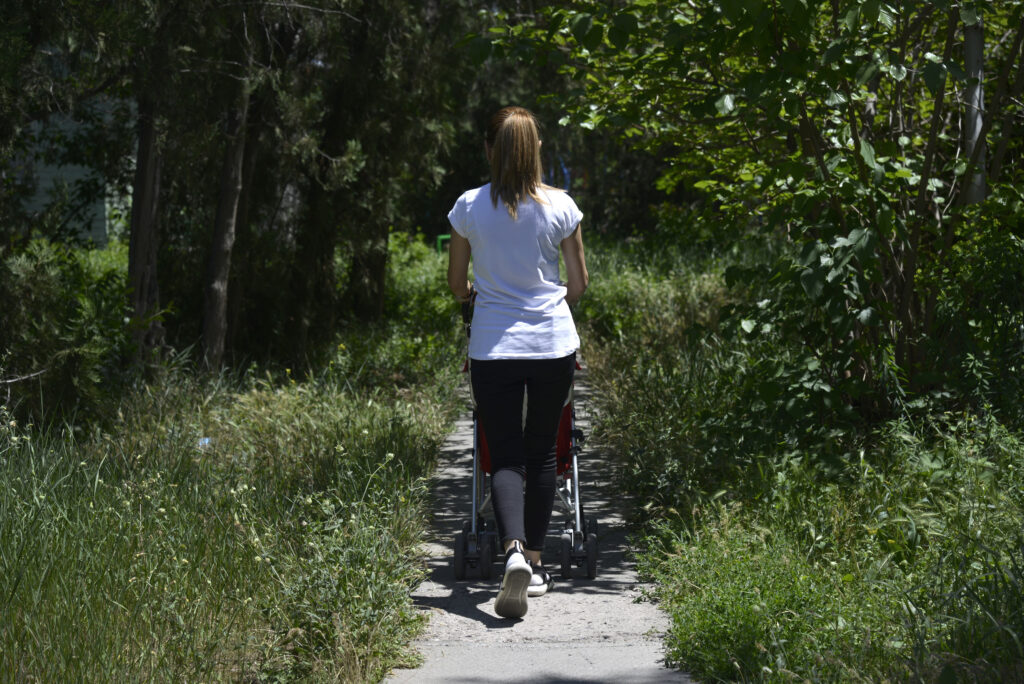 Ani with her youngest daughter
Ani with her youngest daughter
Within the framework of the project, 20 women received professional training. They took part in hairdressing and manicure courses, lasting four months. The participants were trained by the best local specialists, and were also given professional tools and necessary materials.
Now professional manicure is Ani’s second specialisation, while previously she worked only as a hairdresser. This helped her to increase her revenues without even attracting new clients. “The training provided us with a lot of opportunities. We have gone through a difficult period, especially due to the COVID-19 pandemic. But thanks to the skills we have acquired, I can now financially support my family, and help my husband, a professional military man. I would like to work in a beauty salon, but there is no one who could take care of our child (I am not yet able to pay for a nanny), so I have to work at home,” says Ani.
Women in the provinces have a great need for such courses. They need to develop their own skills, says Ani: “Life offers enough proof that women should work and help their husbands. Such courses and projects are in demand among women in the marzes.”
Ani already has regular clients in Vanadzor. Several times a year, Ani has to take her daughter to Yerevan for rehabilitation treatment, and now she can take the tools and necessary materials with her and do her business elsewhere. There will always be clients if you do your job expertly and with love, she says.
The opportunity to become financially independent and more confident
The project ‘Professional Training for Mothers of Children with Disabilities’ aims to provide support to mothers with children suffering from cerebral palsy.
The project provides women with the necessary technical resources and tools to start work as soon as they complete their training. Women also receive special training in social media marketing skills to advertise and offer their services online.
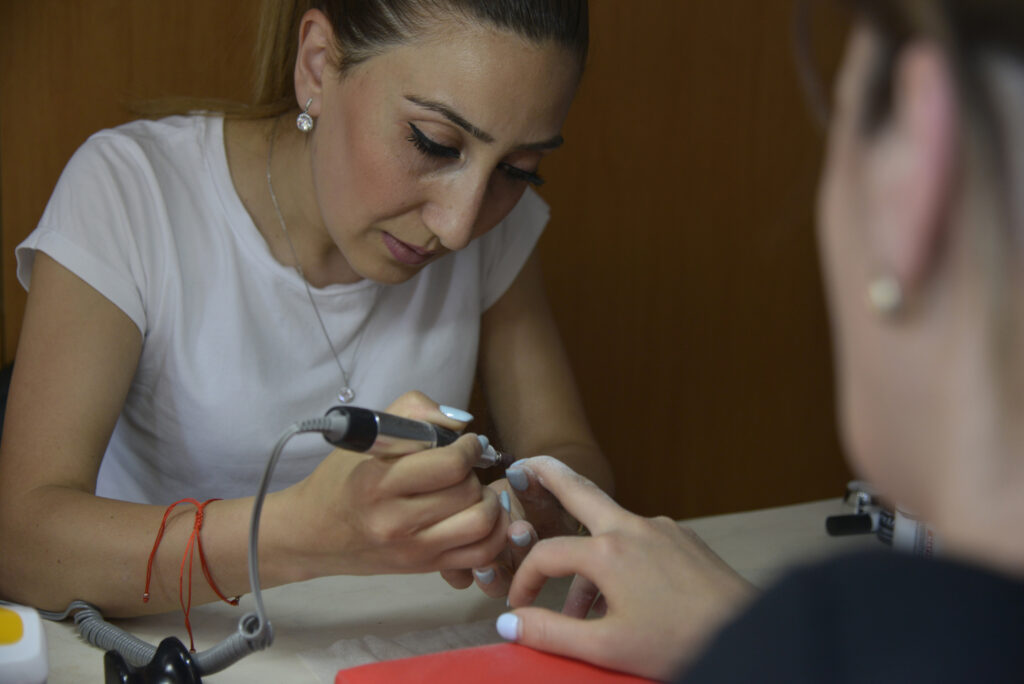 Professional manicure is Ani’s second specialisation
Professional manicure is Ani’s second specialisation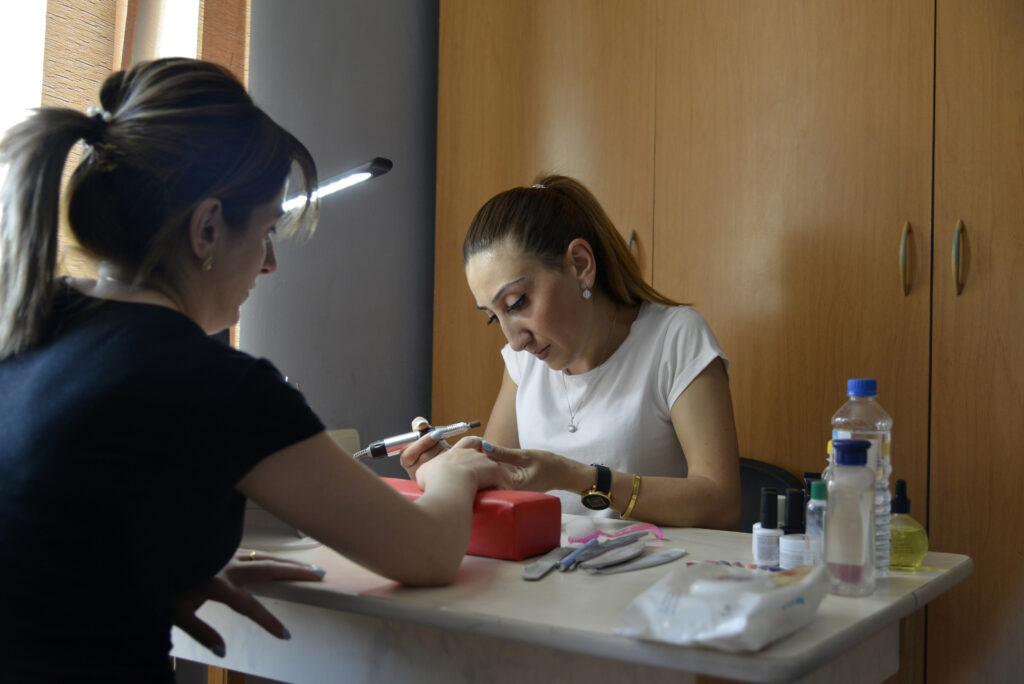 Ani making manicure to one of her clients
Ani making manicure to one of her clients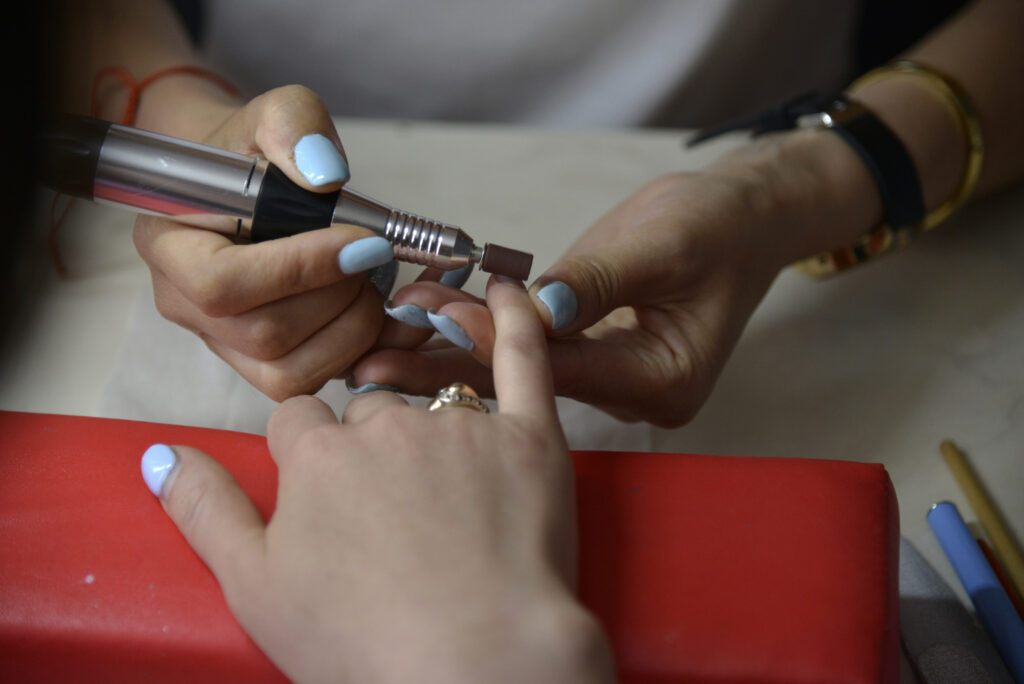 Ani during the manicure procedure
Ani during the manicure procedure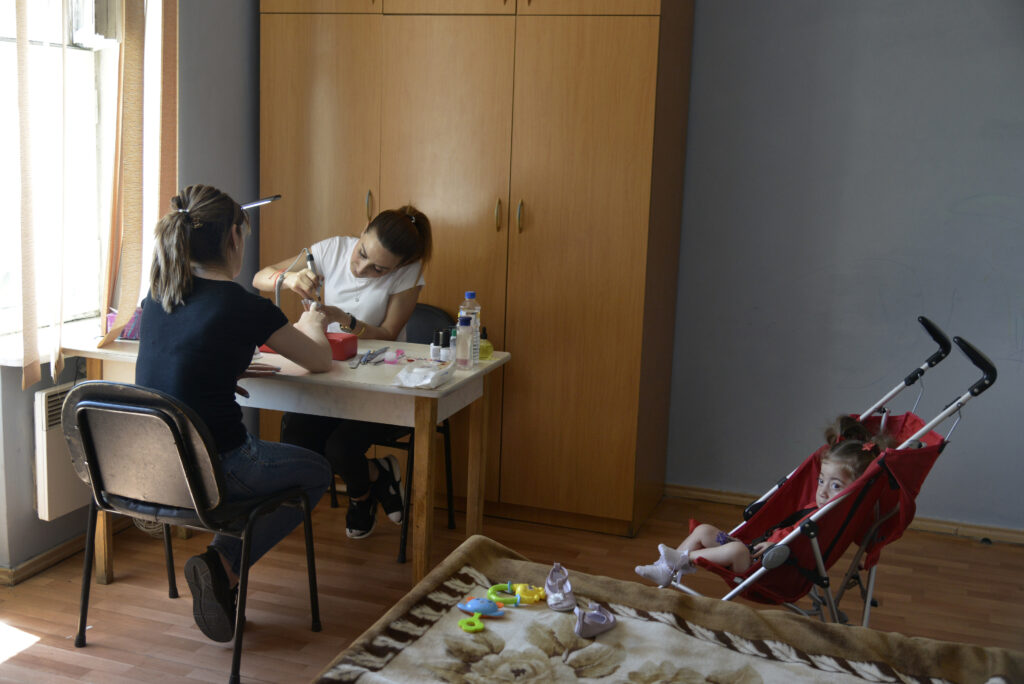 Ani with one of her regular clients
Ani with one of her regular clients
Representative of the NGO ‘Armenian Mothers’ and project manager Saakanush Poghosyan says that women from socially vulnerable families with children with disabilities were involved in the project. Out of 20 women who participated in the project, 12 took hairdressing courses and 8 manicure courses. “This is an opportunity for women to become financially independent and more confident by improving their skills and gradually overcoming vulnerability and depression. The women participating in the project have created for themselves small workspaces at home and are actively working,” says Saakanush.
“When we just started the project in the marz, it was extremely difficult to attract participants, because many were mistrustful – both of the effectiveness of the project and their own capabilities and skills. Now that 20 beneficiaries have already completed the courses and entered the labour market, we receive a lot of calls from women who want to participate in the project,” says the project manager. “Seven months after the start of the project, a lot of women have already registered: they are determined to take part in the project and change the quality of their life. At the moment, the project is completed, but I think it is very important to ensure the continuity of such projects.”
Support during the pandemic
“Fathers of children with special needs in our region work mainly piecework – in construction, in service and other industries. Due to the coronavirus pandemic, many jobs have closed, people have lost their jobs and faced extremely difficult circumstances. Families caring for children with disabilities are especially in need of additional resources, and their situation has become exceptionally difficult,” says Saakanush Poghosyan. “The pandemic has also exacerbated social problems. In such families, disagreements often arise between spouses and other family members, negativity prevails – this can also be smoothed out by doing work that allows you to forget about chores.”
“The goal of our project was to provide opportunities for these women so that they can earn money and help their families during the COVID-19 pandemic,” says Saakanush Poghosyan. “When a woman works, her self-esteem rises, and the moral and psychological atmosphere in the family changes.”
Women ask to continue the project
There are 16,386 disabled residents in the Lori region, including 689 children, 150 of them suffering from cerebral palsy. The Lori regional administration highly appreciated the implementation of the project and officially notified the NGO ‘Armenian Women’ that it will be taking measures to ensure the continuity of the action. To this end, a memorandum will soon be signed between the parties.
“Now, when we are at the final stage of negotiations, the regional administration often enquires what kind of project this is, since it is so incredibly popular among local women. The local administration receives many letters demanding the continuation of the project,” says Poghosyan.
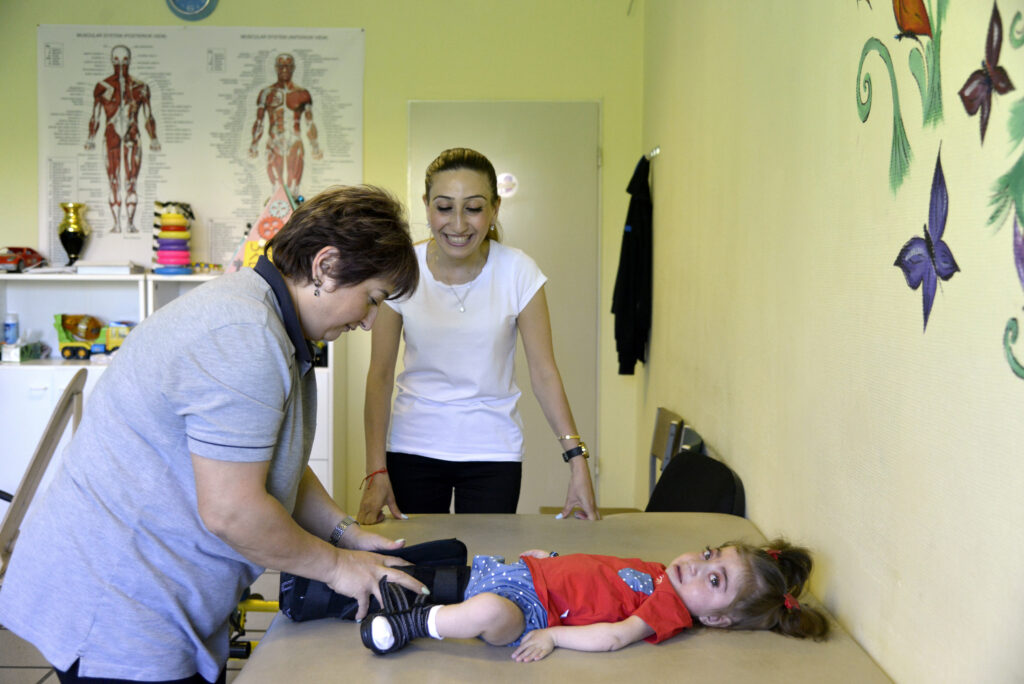 Ani’s daughter at the rehabilitation centre
Ani’s daughter at the rehabilitation centre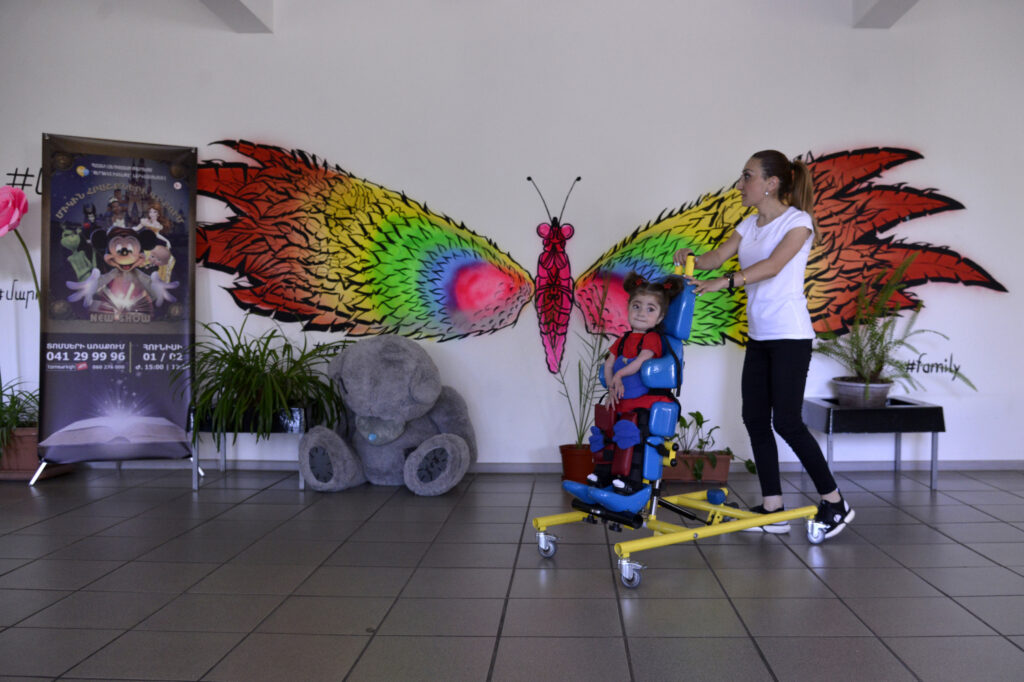 At the rehabilitation centre in Yerevan
At the rehabilitation centre in Yerevan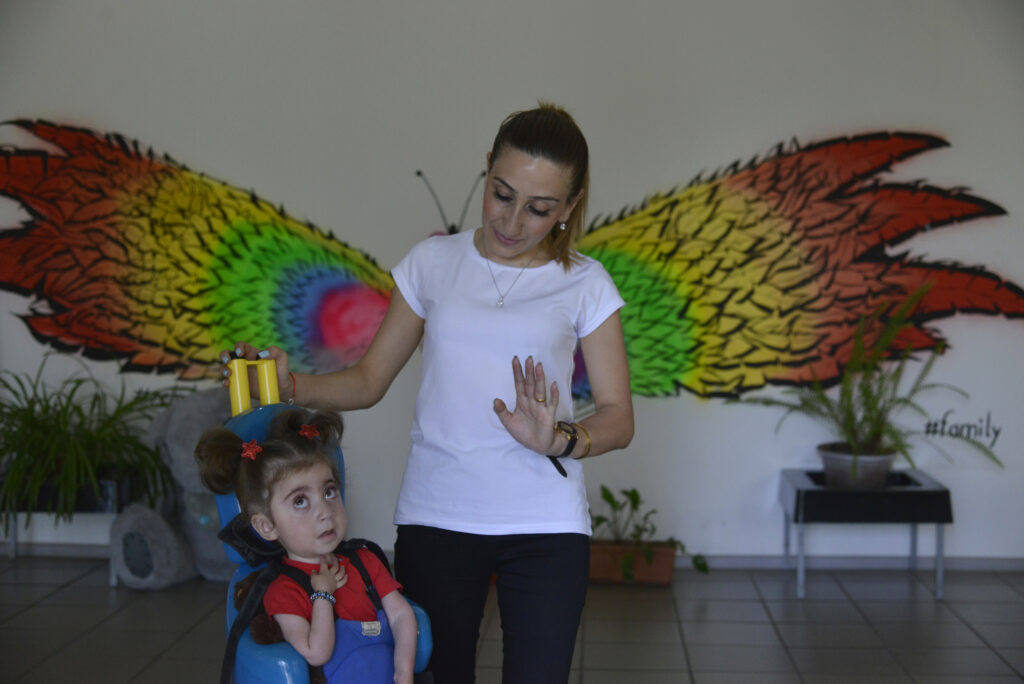 Ani with her daugther
Ani with her daugther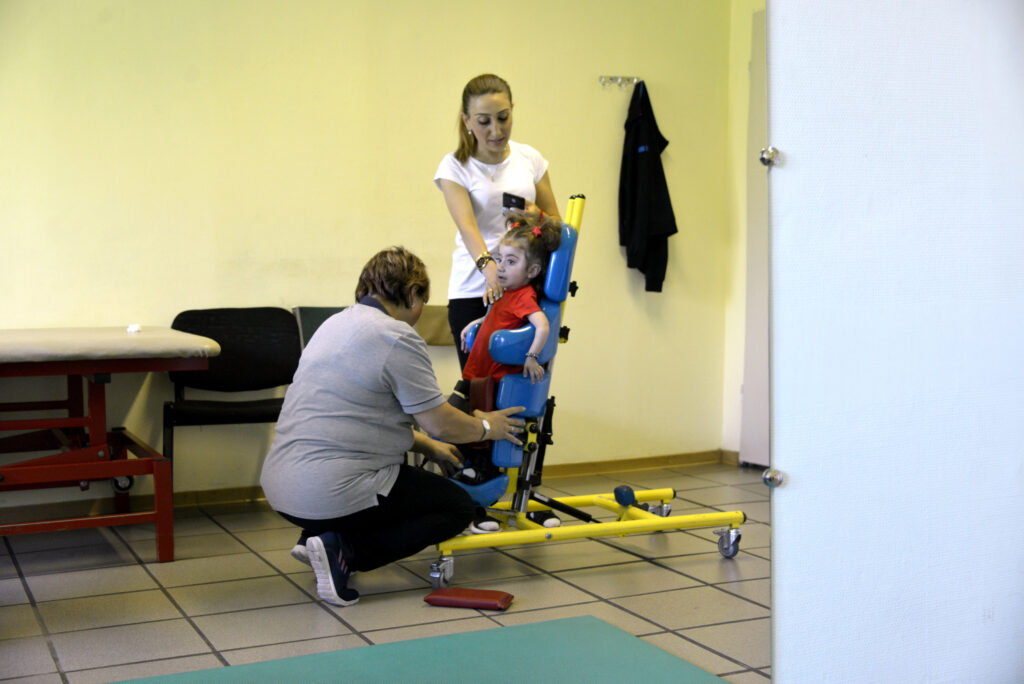 Special treatments at the rehabilitation centre
Special treatments at the rehabilitation centre
“Do not despair, fight to the end, believe in yourself. And everything will be fine!” This is Ani Armenakyan’s motto and advice to parents of children with special needs.
The Eastern Partnership COVID-19 Solidarity Programme is funded by the European Union and implemented in partnership with People in Need, AFEW International and the Netherlands Helsinki Committee. The project seeks to mitigate the adverse effects of COVID-19 and to contribute to the longer-term socio-economic resilience of vulnerable groups in the Eastern partner countries.
Author: Roza Hovhannisyan
Article published in Armenian, Russian and English on Lragir.am
MOST READ
SEE ALSO

No, time is not on Russia‘s side
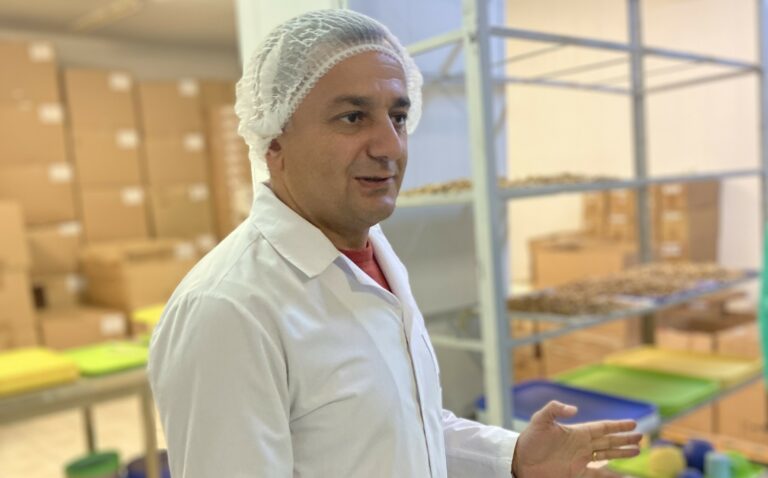
Sweet smell of chocolate
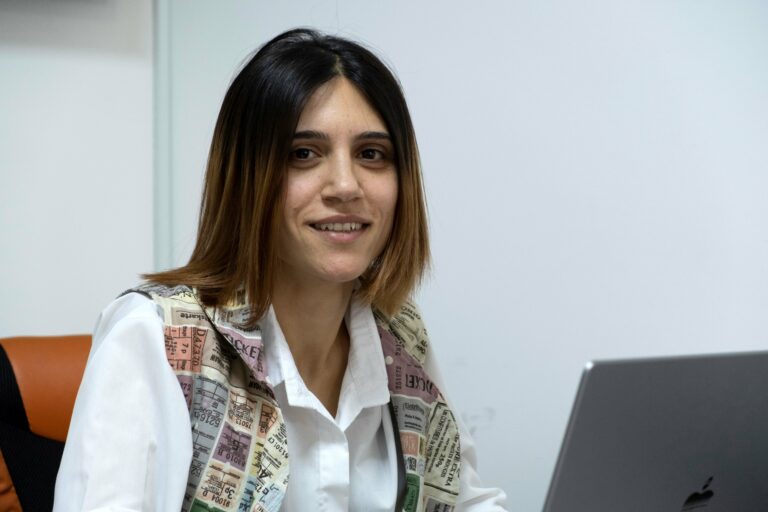
‘Be yourself, and always move forward’: Meri’s advice to young women in business

Be one step ahead of a hacker: check simple cybersecurity tips!
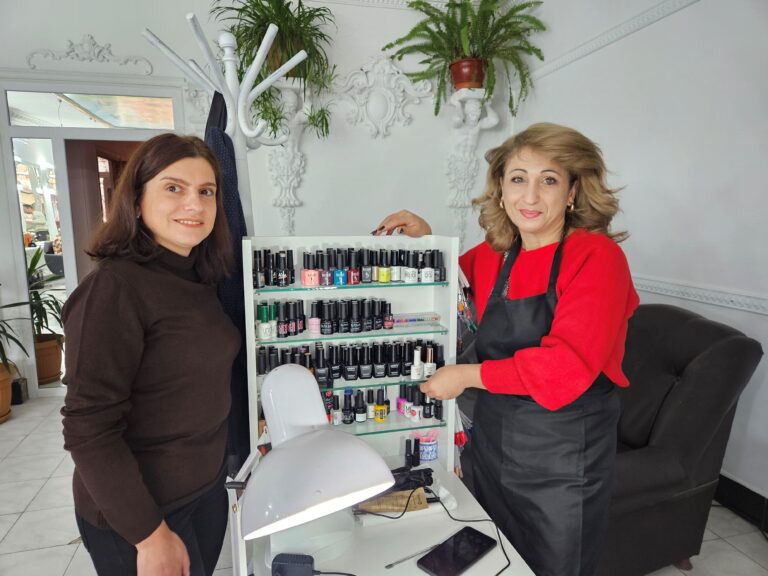
The power of skills: women paving the way to their own business in rural Armenia
More campaign pages:
Interested in the latest news and opportunities?
This website is managed by the EU-funded Regional Communication Programme for the Eastern Neighbourhood ('EU NEIGHBOURS east’), which complements and supports the communication of the Delegations of the European Union in the Eastern partner countries, and works under the guidance of the European Commission’s Directorate-General for Neighbourhood Policy and Enlargement Negotiations, and the European External Action Service. EU NEIGHBOURS east is implemented by a GOPA PACE-led consortium. It is part of the larger Neighbourhood Communication Programme (2020-2024) for the EU's Eastern and Southern Neighbourhood, which also includes 'EU NEIGHBOURS south’ project that runs the EU Neighbours portal.

The information on this site is subject to a Disclaimer and Protection of personal data. © European Union,







